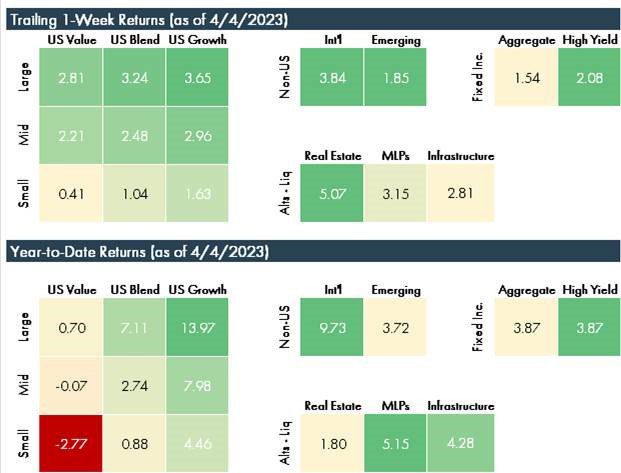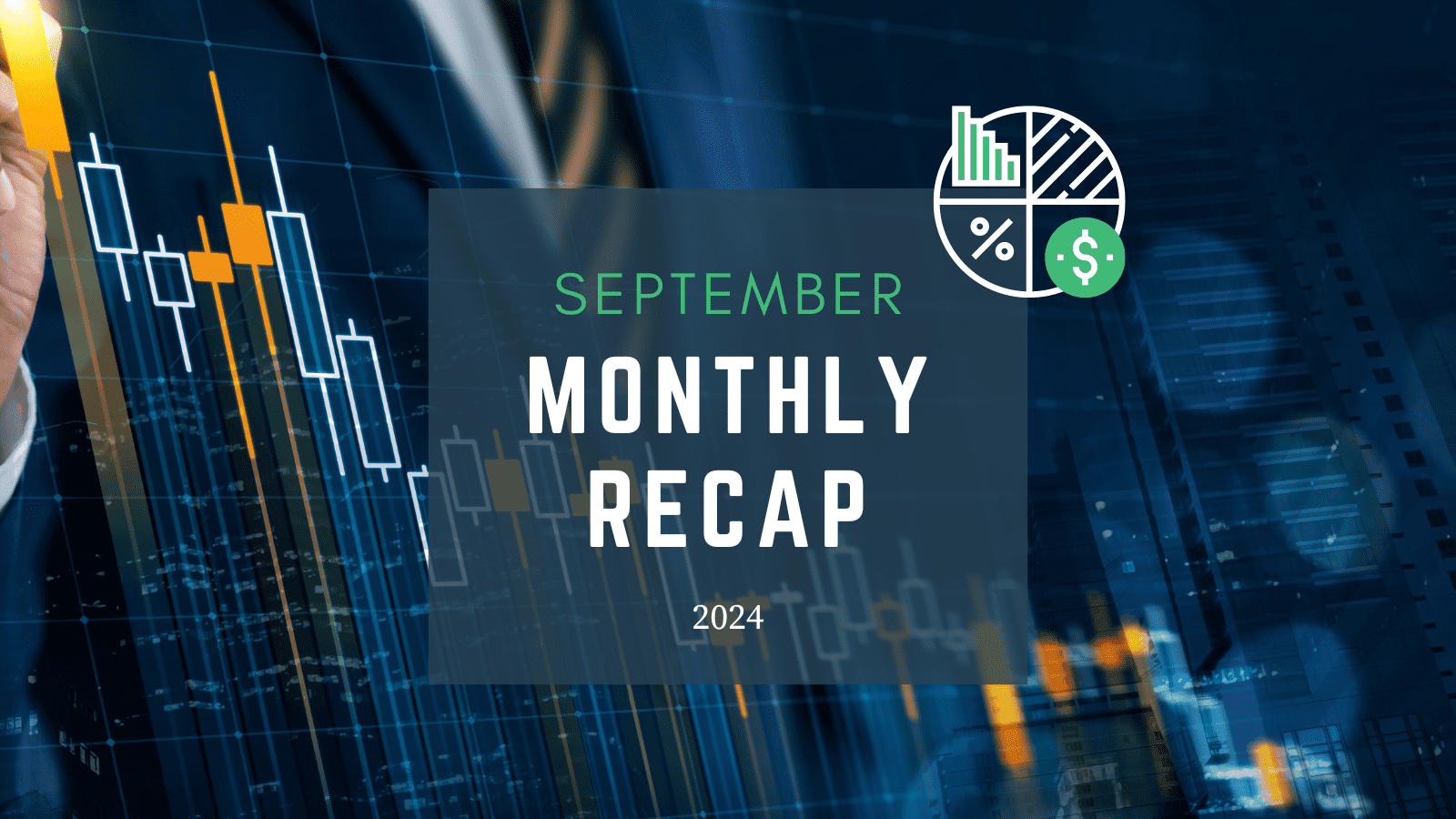Aoifinn Devitt – Chief Investment Officer
Just when it seemed like inflation was firmly receding based on last week’s PCE price index data, oil looked poised to deliver a supply side shock – at least over the weekend. However, in today’s compressed news cycles and real-time investor responses, this shock soon dissipated, and we went back to regular programming. The decision by OPEC nations to cut oil output was met with an initial rebound in energy prices, with the oil price and the energy sector soaring by 8% and over 4.5%, respectively, on Monday. But soon, more of a forensic analysis of what was really going on took hold. The thinking went – if the supply cut is a defensive move, this might suggest that a slackening in demand and the recession that has now been long-forecasted is in fact on the horizon. There also seemed to be real doubt that this would re-start a wave of cost-push inflation as was seen over one year ago with the outbreak of the war in Ukraine, and instead, it looked like this was more an attempt to right the balance after a choppy year for supply and demand. It was a reminder that the Opec+ cartel might not wield the control it once had, underscored by the growing set of alternative energy sources now dotting the energy landscape.
With a weaker jobs report showing a drop in US job openings (below 10 million for the first time in close to 2 years) and ongoing reports of layoffs and inventories building, the somewhat more mundane worries around insufficient growth and a pending slowdown took precedence this week.

Data this week has centered on a downward revision to US GDP growth (2.7% to 2.6% seasonally adjusted annual rate for the fourth quarter) and a slide in non-financial corporate profits by around 4% annualized. This has added to the momentum expectation that the Fed will be slowing its path to tighten and even move towards a pause. Like the chain reaction we are accustomed to seeing in reverse, an indication of a slower Fed led to a weaker dollar, and the fact that there was no meaningful contagion from the demise of SVB and Signature Bank overseas seemed to shore up confidence in non-US markets.
As markets digest what was a volatile quarter for stocks, the post-mortem on the few victims of the banking sector turmoil continued. Some fingers pointed at excessive regulation which had encouraged the banks to build large portfolios of government securities, and others highlighted the lack of nuance in a system which sought to apply universal stress tests across institutions that differed considerably in their lending profile and client base.
It is perhaps too early to properly ascertain the effect of our Spring storms in the banking sector – but it would be unwise to assume that the weather has turned a corner. Even as March madness draws to an end, we have to be alert to April showers.
© 2023 Advisory services offered by Moneta Group Investment Advisors, LLC, (“MGIA”) an investment adviser registered with the Securities and Exchange Commission (“SEC”). MGIA is a wholly owned subsidiary of Moneta Group, LLC. Registration as an investment advisor does not imply a certain level of skill or training. The information contained herein is for informational purposes only, is not intended to be comprehensive or exclusive, and is based on materials deemed reliable, but the accuracy of which has not been verified.
Trademarks and copyrights of materials referenced herein are the property of their respective owners. Index returns reflect total return, assuming reinvestment of dividends and interest. The returns do not reflect the effect of taxes and/or fees that an investor would incur. Examples contained herein are for illustrative purposes only based on generic assumptions. Given the dynamic nature of the subject matter and the environment in which this communication was written, the information contained herein is subject to change. This is not an offer to sell or buy securities, nor does it represent any specific recommendation. You should consult with an appropriately credentialed professional before making any financial, investment, tax or legal decision. An index is an unmanaged portfolio of specified securities and does not reflect any initial or ongoing expenses nor can it be invested in directly. Past performance is not indicative of future returns. All investments are subject to a risk of loss. Diversification and strategic asset allocation do not assure profit or protect against loss in declining markets. These materials do not take into consideration your personal circumstances, financial or otherwise.



